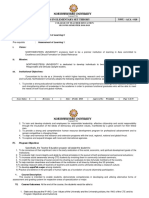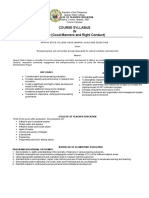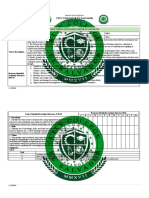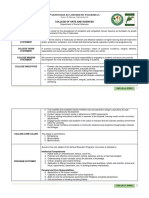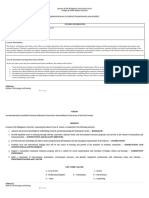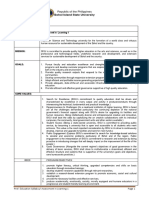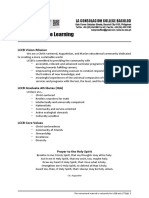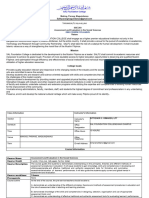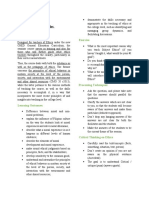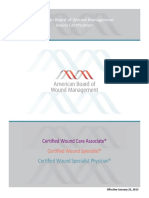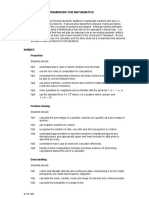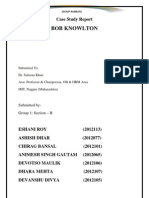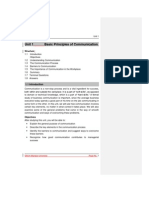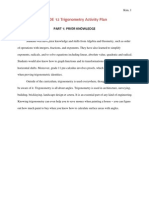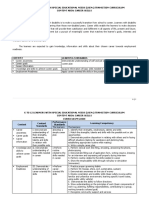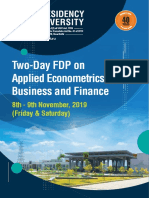0% found this document useful (0 votes)
52 views3 pagesSs119-1.g (Assessment and Evaluation)
The document discusses the importance of embedding ethics in assessment within social sciences education, emphasizing the need to define learning outcomes and involve students in the assessment process. It outlines three orientations for framing ethics-related outcomes: as complementary skills, translation of disciplinary knowledge, and enabling abilities that transcend disciplines. These frameworks aim to effectively integrate ethics into curricula and enhance students' ethical understanding.
Uploaded by
John Lloyd OrayeCopyright
© © All Rights Reserved
We take content rights seriously. If you suspect this is your content, claim it here.
Available Formats
Download as DOCX, PDF, TXT or read online on Scribd
0% found this document useful (0 votes)
52 views3 pagesSs119-1.g (Assessment and Evaluation)
The document discusses the importance of embedding ethics in assessment within social sciences education, emphasizing the need to define learning outcomes and involve students in the assessment process. It outlines three orientations for framing ethics-related outcomes: as complementary skills, translation of disciplinary knowledge, and enabling abilities that transcend disciplines. These frameworks aim to effectively integrate ethics into curricula and enhance students' ethical understanding.
Uploaded by
John Lloyd OrayeCopyright
© © All Rights Reserved
We take content rights seriously. If you suspect this is your content, claim it here.
Available Formats
Download as DOCX, PDF, TXT or read online on Scribd
/ 3



